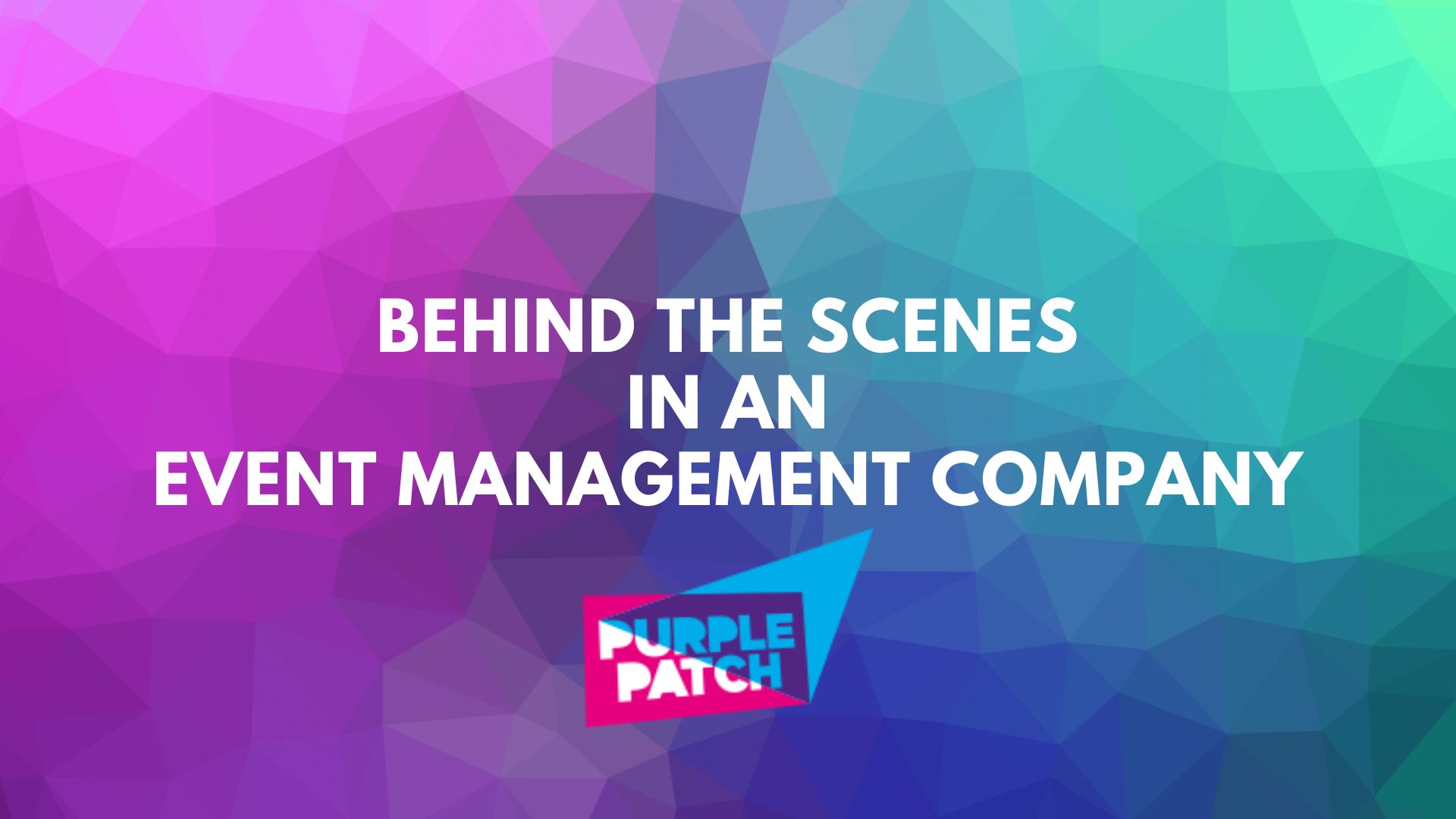Corporate event management involves organising and executing various types of corporate events, ranging from large corporate functions to intimate gatherings. Event management companies play a crucial role in making these events successful and memorable.
Have you ever wondered how exactly do they accomplish this? What all goes into making a corporate event happen and meeting the set goals and expectations? If you were wondering the same, you have come to the right page! In this article, we take a closer look at what goes on behind the scenes in an event management company during a typical week. But first, let’s get a better idea of what the corporate framework of an event management company looks like.
Corporate Framework of an Event Management Company
Team Structures and Roles
Event management companies typically consist of various teams and each team has specific roles and responsibilities that contribute to the overall success of an event. The various teams typically include:
- Event Planning: This team is responsible for conceptualising, designing, and planning the overall structure and theme of the event. They coordinate with clients to understand their objectives and preferences, and then create detailed event plans, timelines, and budgets.
- Logistics and Operations: This team handles the logistical aspects of the event, including venue selection, transportation arrangements, equipment rental, and coordination with vendors and suppliers. They ensure that all logistical elements are in place for a smooth execution of the event.
- Marketing and Promotion: This team is responsible for promoting the event and generating interest among the target audience. They develop marketing strategies, create promotional materials, manage social media campaigns, and handle media relations to maximise event attendance and visibility.
- Technical and AV Support: This team manages the technical aspects of the event, including audiovisual (AV) equipment, lighting, sound systems, and stage setups. They ensure that all technical requirements are met and provide on-site support during the event to ensure everything runs smoothly.
- Catering and Hospitality: This team is responsible for arranging food and beverage services for the event, including menu selection, catering contracts, and coordination with vendors. They also oversee hospitality services such as guest accommodation, VIP arrangements, and attendee amenities.
- Registration and Guest Services: This team handles event registration, attendee management, and guest services. They manage RSVPs, issue event tickets or badges, provide information to attendees, and handle any inquiries or special requests before and during the event.
- Creative and Design: This team focuses on the creative aspects of the event, including graphic design, branding, decor, and visual aesthetics. They develop event themes, create branding materials, design signage and decorations, and ensure that the event’s visual elements align with the client’s vision.
- Finance and Budgeting: This team manages the financial aspects of the event, including budget development, expense tracking, invoicing, and financial reporting. They ensure that the event stays within budget and that all financial transactions are accurately recorded and documented.
These teams work collaboratively to plan, organise, and execute corporate events, ensuring that every aspect of the event is carefully coordinated and executed to meet the client’s objectives and expectations.
Team Coordination
Task delegation
Team leaders delegate tasks based on individual strengths and expertise. Clear communication ensures that team members understand their responsibilities and deadlines.
Collaboration
Despite departmental divisions, effective teamwork often involves cross-functional collaboration. Teams work together, sharing information and resources to ensure all aspects of an event align seamlessly.
Regular check-ins and meetings help synchronise efforts across teams. Collaboration tools and project management software facilitate communication and task tracking, ensuring everyone stays on the same page.
Working Under Pressure
Strong teamwork involves maintaining composure and focus under pressure. Team members support each other, providing reassurance and assistance during challenging situations.
Communication and Feedback Loops
Open Communication Channels: Encouraging an open-door policy and fostering a culture of transparency promotes effective communication within teams. Team members feel comfortable sharing ideas, concerns, and feedback.
Feedback Mechanisms: Regular feedback loops allow teams to assess their performance and identify areas for improvement. Constructive feedback helps refine processes and enhance teamwork over time.
Preparation for the Week Ahead
Monday Morning Kickoff
Monday mornings are crucial for event management teams as they gather to kickstart the week. These meetings set the tone and direction for the upcoming tasks. During these sessions, team leaders outline what needs to be done for each event on the agenda. This ensures that everyone knows their role and what’s expected of them.
Finalising Logistics and Coordination
Once the objectives are clear, the focus shifts to sorting out the practical details. This involves confirming arrangements with vendors, suppliers, and venues. It’s also about making sure all necessary equipment and resources are ready to go. Collaboration between different departments is vital at this stage to ensure everything comes together smoothly.
Briefings and Alignment
Good communication is essential for a successful week. After the Monday meeting, teams hold briefings to make sure everyone is on the same page. These sessions allow team members to ask questions and clarify any uncertainties. By aligning everyone’s efforts and goals, these briefings set the stage for a productive and coordinated week ahead.
Day-to-Day Operations
Pre-event Activities
Preparations
Teams start with the hands-on preparations for the upcoming events. Venue setup teams swing into action, coordinating layout designs and ensuring the space is optimised for the event’s purpose. Meanwhile, technical teams focus on setting up equipment and conducting rigorous testing to ensure seamless functionality during the event.
Aligning with Objectives
Pre-event briefings ensure that everyone is aligned with the event’s objectives and client expectations. Team members understand their roles and responsibilities, ensuring a cohesive approach on the day of the event.
Collaboration
Collaboration is key to adapting to changes smoothly. Teams brainstorm solutions together, drawing on each other’s strengths and expertise to overcome unforeseen obstacles.
Refinement and Rehearsals
As the week progresses, attention shifts to refining the finer details of the event. Decoration teams work tirelessly to enhance the aesthetic appeal of the venue, ensuring that it aligns with the client’s vision and branding. Simultaneously, run-throughs and troubleshooting sessions are conducted by technical and logistics teams to iron out any potential glitches and ensure a smooth execution on the day of the event.
Final Run-Throughs
In the days leading up to an event, teams conduct final run-throughs to ensure everything is in place. This includes checking equipment, reviewing schedules, and confirming logistics.
Activities During the Event
Setting the Stage
After all the meticulous planning, teams come together to execute the main event. From coordinating entertainment acts to managing catering services and registration processes, every aspect of the event design is meticulously overseen to ensure a seamless and memorable experience for attendees.
Onsite Coordination
The focus shifts to onsite management and coordination. Security teams work hand in hand with operations and VIP services to maintain order and ensure the safety and comfort of all attendees. Teams remain vigilant, addressing any emerging issues promptly and efficiently to meet the expectations set for the event.
Problem-Solving
Teams are trained to think quickly on their feet and devise creative solutions to unexpected challenges. During the event, teams remain on-site to provide support and address any issues that may arise. Effective communication and quick decision-making are essential for resolving challenges and ensuring a seamless experience for attendees.
Ensuring Flexibility and Adaptability
Teams remain on standby to address any last-minute issues that may arise, demonstrating agility and problem-solving skills. This includes everything from adjusting layouts to accommodating changes in the program, all while ensuring that the event remains on track for a successful outcome.
Post-event Activities
Debriefing Sessions
After the event concludes, teams hold debriefing sessions to evaluate their performance and gather feedback. This includes assessing what went well, identifying areas for improvement, and discussing any lessons learned.
Reflecting on Challenges
After each event, teams conduct post-mortem meetings to reflect on challenges encountered and lessons learned. Honest discussions help identify areas for improvement and prevent similar issues in the future.
Evaluation
Feedback from post-event evaluations is used to implement changes and refine processes for future events. By embracing a culture of continuous improvement, event management teams strive to deliver even better experiences with each event they undertake.
Wrapping Up
As the event draws to a close, teams shift their focus to post-event activities. Feedback-gathering teams engage with attendees to gather valuable insights and testimonials, while wrap-up and cleanup crews ensure that the venue is returned to its original state. It’s a collaborative effort to tie up loose ends and reflect on the event’s success, setting the stage for future endeavours.
Celebrating Achievements
Reflecting on the week’s accomplishments, teams take pride in their collective achievements. Recognition is given to successful collaborations and the dedication of team members who went above and beyond to ensure the event’s success. It’s a moment to celebrate the hard work and commitment that made it all possible.
Final Thoughts
We hope this article gave you a glimpse of behind-the-scenes efforts that go into corporate event management, from planning an event to making it successful. As we reflect on the work we do at Purple Patch, it’s clear that our success is built on decades’ worth of combined experience, effective collaboration and clear communication – not just internal communication, but also client-facing communication.
Looking ahead, our dedication to teamwork and excellence remains steadfast and we look forward to creating many more unforgettable moments together in the world of event management. Whether you’re planning a corporate conference, gala dinner, or team-building retreat, our expert team is here to bring your vision to life. Contact us today and let’s work together to create an extraordinary event that exceeds your expectations and delights your guests!



